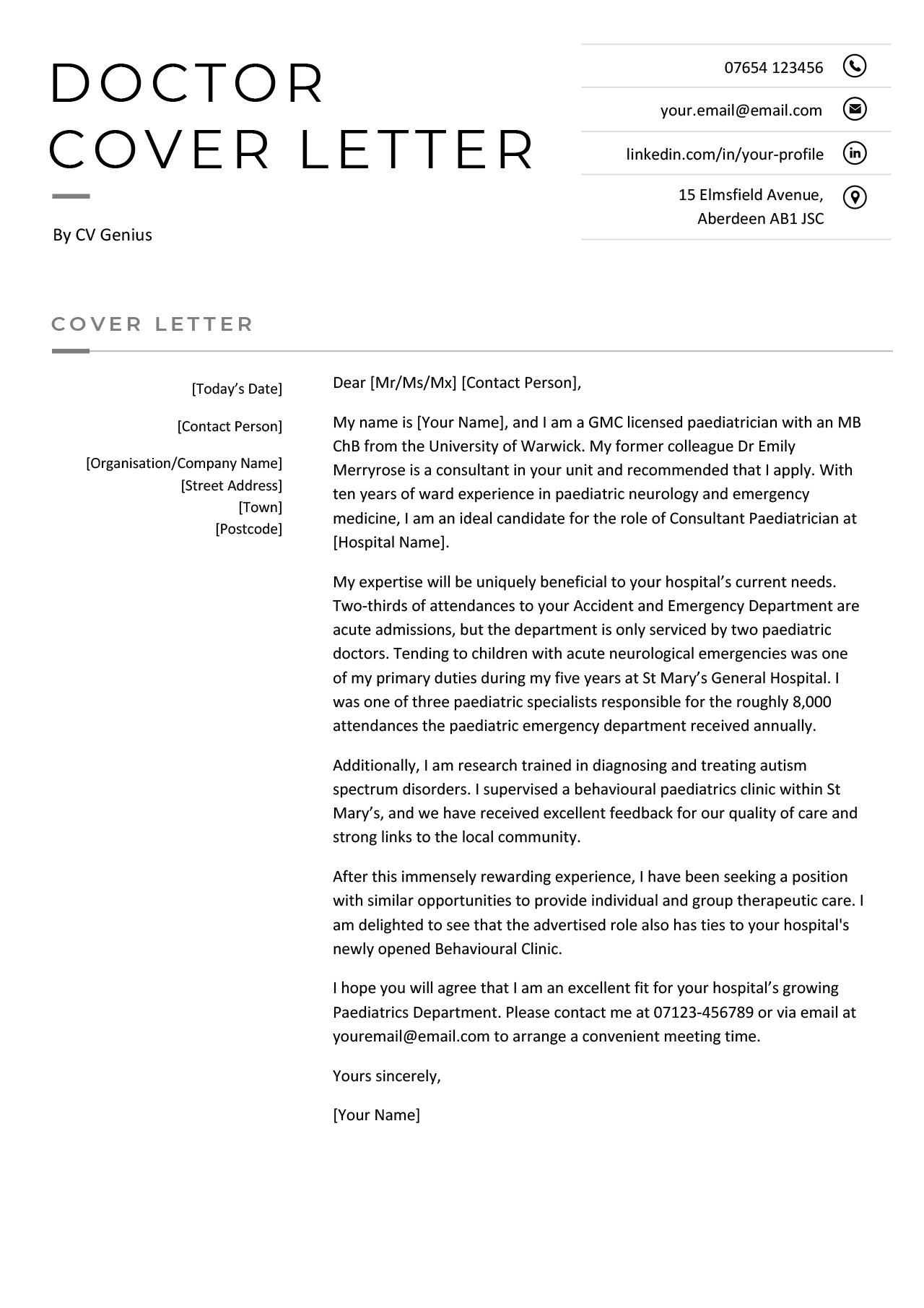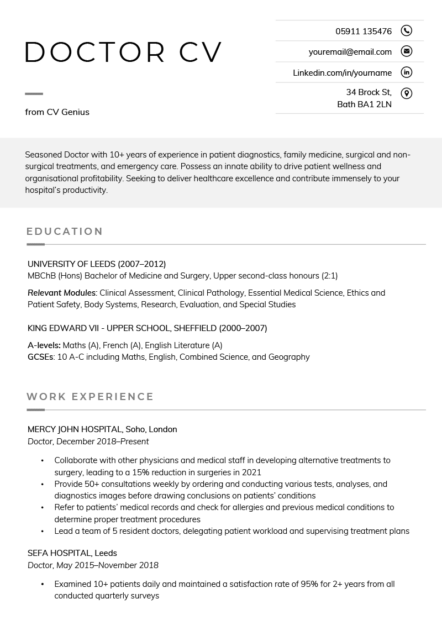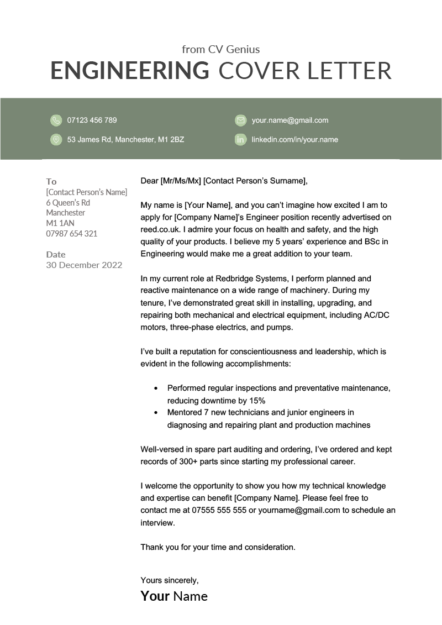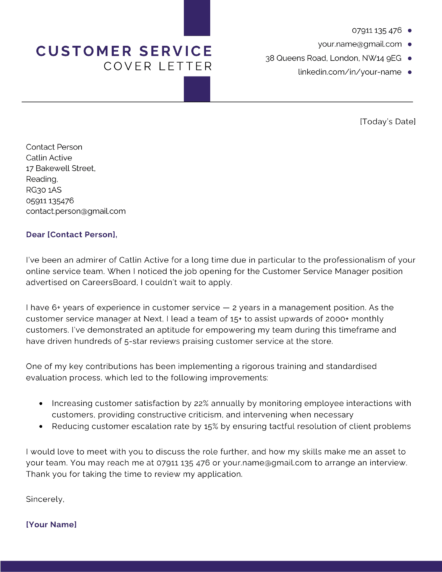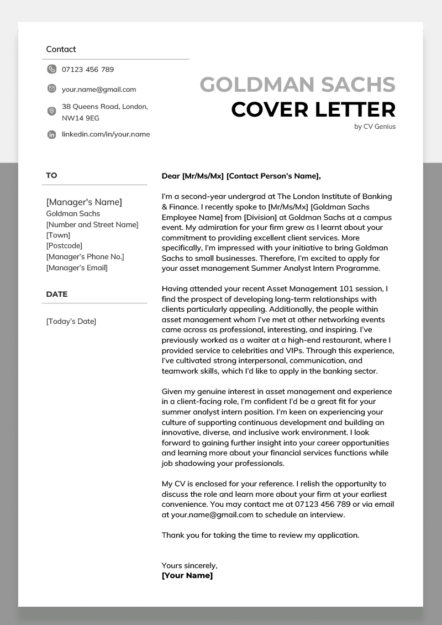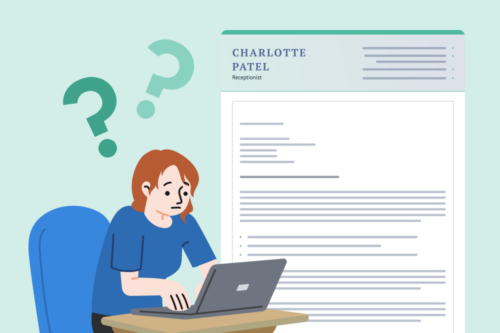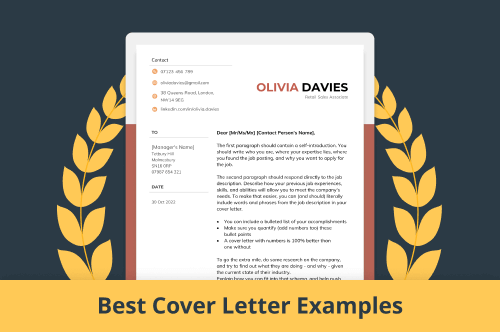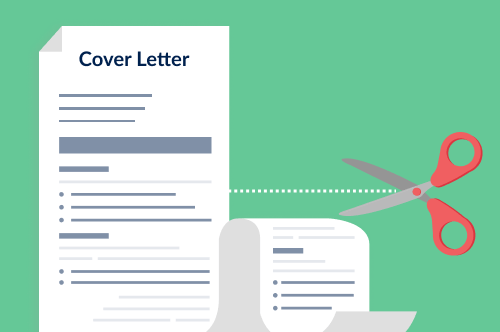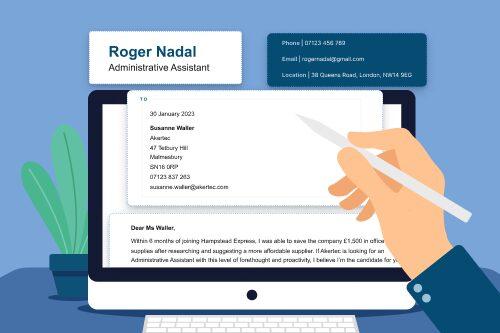Be sure you use the proper cover letter format to make your cover letter readable and professional.
Doctor Cover Letter Sample Template (Text Format)
[Today’s Date]
Contact Person’s Name
Organisation/Company Name
Street Address
Town
Postcode
Dear [Mr/Ms/Mx] [Contact Person’s Name],
My name is [Your Name], and I am a GMC licensed paediatrician with an MB ChB from the University of Warwick. My former colleague Dr Emily Merryrose is a consultant in your unit and recommended that I apply. With ten years of ward experience in paediatric neurology and emergency medicine, I am an ideal candidate for the role of Consultant Paediatrician at [Hospital Name].
My expertise will be uniquely beneficial to your hospital’s current needs. Two-thirds of attendances to your Accident and Emergency Department are acute admissions, but the department is only serviced by two paediatric doctors. Tending to children with acute neurological emergencies was one of my primary duties during my five years at St Mary’s General Hospital. I was one of three paediatric specialists responsible for the roughly 8,000 attendances the paediatric emergency department received annually.
Additionally, I am research trained in diagnosing and treating autism spectrum disorders. I supervised a behavioural paediatrics clinic within St Mary’s, and we have received excellent feedback for our quality of care and strong links to the local community.
After this immensely rewarding experience, I have been seeking a position with similar opportunities to provide individual and group therapeutic care. I am delighted to see that the advertised role also has ties to your hospital’s newly opened Behavioural Clinic.
I hope you will agree that I am an excellent fit for your hospital’s growing Paediatrics Department. Please contact me at 07123-456789 or via email at youremail@email.com to arrange a convenient meeting time.
Yours sincerely,
[Your Name]
How to write a standout medical doctor cover letter
Before you begin writing, make sure you know how to write a cover letter in a way that makes you seem like the best candidate for the job.
Doctors have many different career avenues, some of which are highly competitive. Whether you’re pursuing a general practitioner or hospital position, employers will look for candidates with the right professional history, education, and personal traits. A well-formulated cover letter will help convince them of your suitability.
Although cover letters aren’t compulsory, including one will make your application much more convincing and give the employer a clearer understanding of your expertise and personal attributes.
Here are five tips on how to write a doctor cover letter that will help you secure your ideal medical position.
Applying through NHS Jobs? You won’t be able to upload a cover letter, but you can still use these tips to fill out the Supporting Information section.
1. Ensure your doctor cover letter is concise and well structured
Consider how long your cover letter should be before you start writing. Employers rarely have much time to review applications, so a multipage cover letter will likely be off-putting.
The best length for a cover letter is 250 to 400 words or three to four paragraphs on one page.
Your cover letters should use the following format:
Doctor Cover Letter Correct Format
| Header | Give your name and contact information (phone number and email). |
| Contact person, company contact information, and date | Address the contact by name or relevant department. |
| Salutation (also known as a greeting) | Use a personalised business greeting. Avoid overly formal phrases like 'To whom it may concern,'. |
| Introduction | Give an overview of your years of experience, medical speciality, and reason for applying. |
| Body (two to three paragraphs) | Highlight healthcare skills and experiences that are relevant to the position. Explain your motivations for applying. |
| Ending | Express gratitude for the opportunity and suggest an interview. |
| Sign-off | Use 'Yours sincerely,' if you addressed the contact by name and 'Yours faithfully,' if you addressed the cover letter to a department. |
Not sure who to address your cover letter to? Adverts on NHS Jobs include a contact person. If your job wasn’t listed on NHS Jobs or a contact person wasn’t given, contact the employer directly.
2. Make a professional introduction
Start your cover letter by stating your years of experience and speciality. You should also include your professional registration status (e.g., General Medical Council registered) and the route you took to obtain it (e.g., University of Manchester).
If possible, give the name of a mutual acquaintance to build rapport. For example, mention a former professor or colleague:
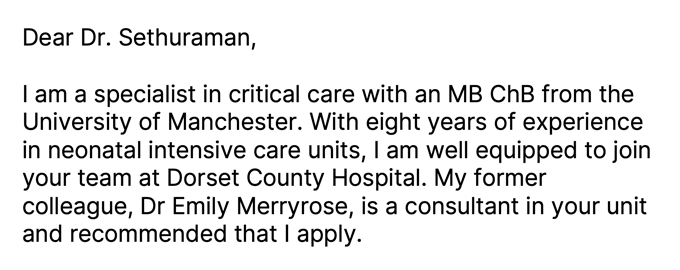
3. Explain your motivations for applying
Healthcare centres invest significant time and resources to onboard new doctors. You need to make a cover letter that convinces the employer that this investment won’t be wasted on you.
Creating a personalised cover letter that clearly states your intentions helps reassure healthcare employers that you’re serious about the job. One way to do this is to make your cover letter about why you’re suitable for the role and not just an overview of your professional and academic achievements.
Even if you have plenty of experience, failing to relate it to the job opportunity will weaken your application:
Uses generic descriptions
I have extensive experience as a speech therapist, having worked in the paediatrics ward at Doncaster General Hospital for 12 years. I assessed and diagnosed children with a wide range of communication needs and provided therapeutic support through individual and group programs.
While this candidate’s work experience is impressive, they haven’t explained its relevance to the employer.
The core function of a cover letter is to show how your medical expertise and interests benefit the open position. Any experience you describe should be relevant to the role and support your reason for applying. Here’s how we might do that with the previous candidate’s cover letter:
Connects experience to the job
My extensive experience is aligned with many of Leicester Royal Infirmary’s research objectives. As a teaching hospital focusing on communication disabilities, you will surely be looking for a paediatrician with the expertise to further your current research. I have 12 years of experience as a children’s speech therapist at Doncaster General Hospital, during which I contributed to 10+ academic studies, mostly on therapeutic support in the form of individual and group programs.
The second example demonstrates almost the same experience as the first. But it shows exactly how this experience will be beneficial to the hospital. Moreover, it answers one of the employer’s most pressing questions: why do you want to work for us?
4. Demonstrate the right soft skills for healthcare
Soft skills (personality-based abilities such as interpersonal skills and communication skills) are essential to medicine, but they’re difficult to demonstrate when you make a CV. Your cover letter is the only part of your application with the word count to fully illustrate them.
You can highlight important medical soft skills such as active listening, empathy, and good bedside manner in the body of your cover letter, like this:
Throughout my 6 years at Salwarpe Medical Practice, I received excellent feedback for my quality of care and strong links to the local community.
A well-written cover letter also demonstrates strong written communication skills. So use action words and the active voice to make your writing appear clearer and more enthusiastic:
I was thrilled to see that Peterborough General Hospital are hiring for the role of Junior Clinical Fellow in Neurology.
5. Close with a positive final paragraph
Knowing how to end a cover letter can highlight your suitability for a patient-facing role. Show positivity and gratitude and express interest in meeting for an interview:
Thank you for your interest in my application. If you have any questions about my experience, please feel free to contact me on any evening at 07123 456789 or email@gmail.com. I would be delighted to meet in person to discuss the position further.
You may add that you’ll follow up later to check on the status of your application. This helps prevent you from appearing pushy while also encouraging a prompt response from the employer.
